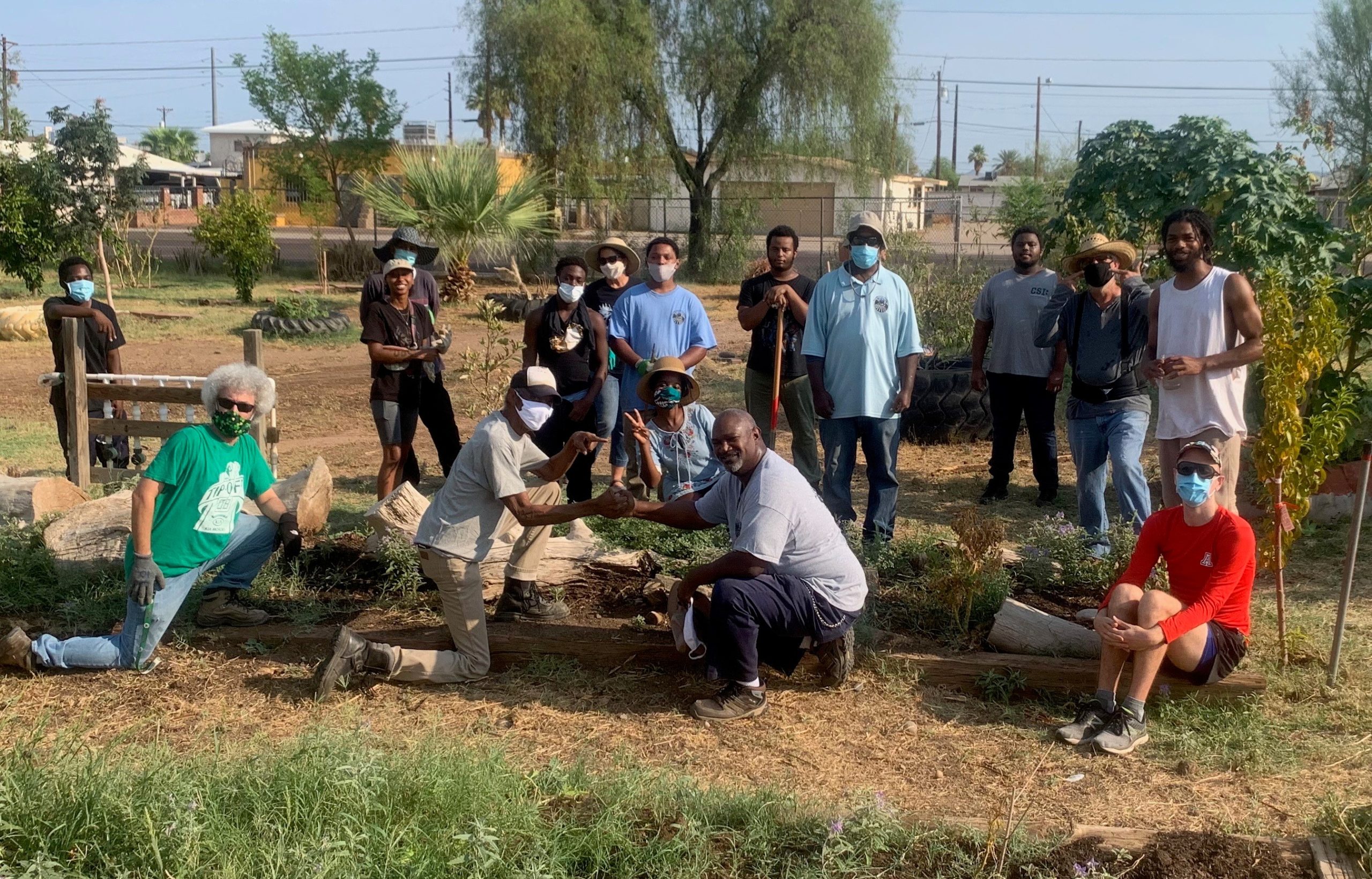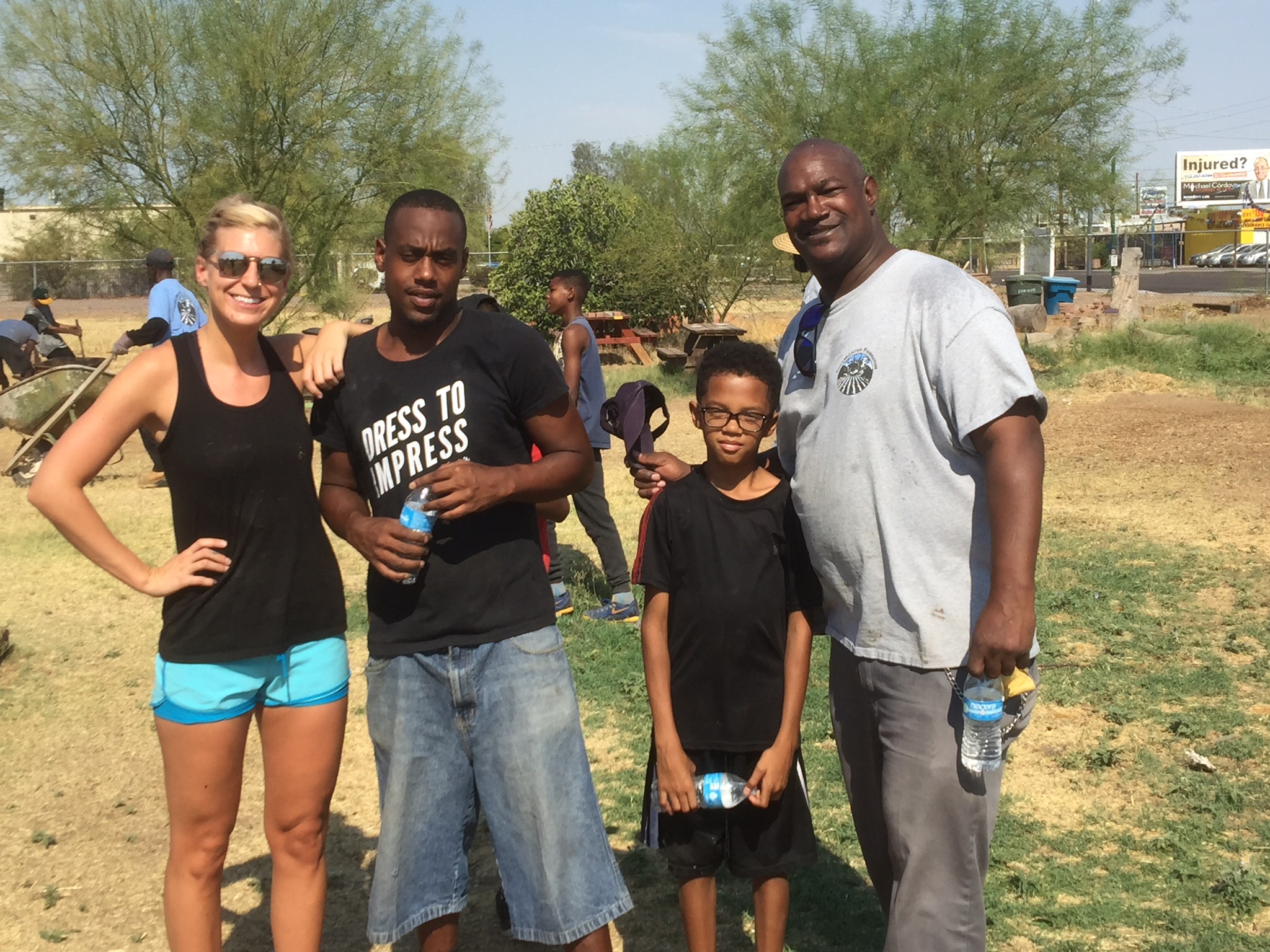Tiger Mountain Foundation is a nonprofit organization dedicated to empowering communities through gardening. The organization provides job skills and supports workforce development through neighborhood revitalization. They work to beautify dilapidated neighborhoods through Agri-Landscape. This incorporates fruits, vegetables, nuts, flowers, and herbs into the landscaping of a home’s front or back yards, or empty neighborhood lots into bountiful food supplies. This initiative helps alleviate food scarcity and reduces the urban heat island effect.
The vision for Tiger Mountain Foundation came to founder Darren Chapman in 2003. At the time, Chapman lived in Los Angeles and was running on empty from a career in nightclub management.
“I was living life in the fast lane,” Chapman says. “And I wanted to wake up in the morning and know I was doing good; I wanted to change my life around, change that narrative.”
Gardening was a big part of Chapman’s life growing up in south central L.A. He recalls his family’s backyard garden yielding not only food, but also hope. Chapman knew that gardening feeds not only the body, but also the mind and soul, and he knew that the planting, harvesting, and sharing had the power to bring communities together.
The Tiger Mountain Foundation officially became a 501c3 in 2007 and has been growing fresh, wholesome food and communal unification ever since.
The organization strives to restore pride in neighborhoods through the beautification of vacant lots while inspiring people to volunteer and engage in their communities. They also provide local youth with the skills needed to prepare them to enter the workforce.

“We provide on-the-job opportunities through landscaping, planting in community gardens, and selling the produce they grow at local farmers’ markets,” says Chapman.
It was actually at one of those farmer’s markets where Chapman met Jan Doughty, Tiger Mountain’s office administrator. For the past five years, Doughty has helped secure grant funding for the non-profit and basically runs the show with Chapman.
Tiger Mountain grows fruits, vegetables and grains across three main areas of land in South Phoenix. “We have the Spaces of Opportunity site, which is 20 acres, the Garden of Tomorrow at 1.5 acres, and the People’s Garden, which is 5 acres,” says Doughty.
They’re growing pretty much every kind of fruit and vegetable on those acres. The crops include wheat, corn, collard greens, turnip greens, kale, squash, sweet potatoes, strawberries, peaches, nuts, herbs, and much more.
“If it grows, then we’re growing it,” he explains. “We’re able to grow a variety of different foods by using cooling soil and creating microclimates which allow it all to thrive.”
Everything they grow and harvest goes back into the community through partnerships with Fresh Food Collab, Local First, Arizona Community Kitchens and other collaboratives that provide food to those in need.

“The produce we sell at the farmers’ market is for donations,” says Doughty. “That ensures that everyone has equal access to fresh, wholesome food.”
Since Tiger Mountain Foundation provides food to the community, they are considered an essential business, and have remained open and productive throughout the pandemic; however, they have seen a significant decrease in their volunteer workforce.
Tiger Mountain relies on volunteers for everything from land preparation, planting and harvest, to selling, tours and education. The second and fourth Saturday of each month they offer TMF Experience Days, when the public is invited to the gardens to learn about the foundation and get their hands dirty, planting, sowing and harvesting. All volunteers have the opportunity to take home some of the produce for a contribution made towards the foundation’s youth initiative.
For more information and to learn about volunteer opportunities with Tiger Mountain Foundation, visit www.tigermountainfoundation.org.
Keep up with all of Green Living‘s original content online
and on social media.






